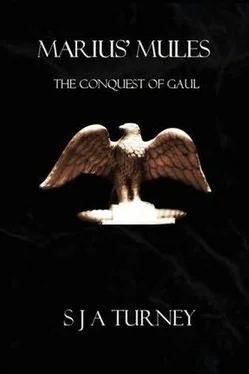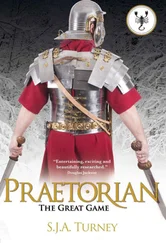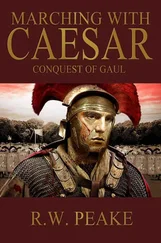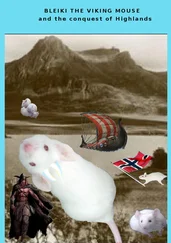S. Turney - The conquest of Gaul
Здесь есть возможность читать онлайн «S. Turney - The conquest of Gaul» весь текст электронной книги совершенно бесплатно (целиком полную версию без сокращений). В некоторых случаях можно слушать аудио, скачать через торрент в формате fb2 и присутствует краткое содержание. Год выпуска: 2011, Жанр: Исторические приключения, на нидерландском языке. Описание произведения, (предисловие) а так же отзывы посетителей доступны на портале библиотеки ЛибКат.
- Название:The conquest of Gaul
- Автор:
- Жанр:
- Год:2011
- ISBN:нет данных
- Рейтинг книги:5 / 5. Голосов: 1
-
Избранное:Добавить в избранное
- Отзывы:
-
Ваша оценка:
- 100
- 1
- 2
- 3
- 4
- 5
The conquest of Gaul: краткое содержание, описание и аннотация
Предлагаем к чтению аннотацию, описание, краткое содержание или предисловие (зависит от того, что написал сам автор книги «The conquest of Gaul»). Если вы не нашли необходимую информацию о книге — напишите в комментариях, мы постараемся отыскать её.
The conquest of Gaul — читать онлайн бесплатно полную книгу (весь текст) целиком
Ниже представлен текст книги, разбитый по страницам. Система сохранения места последней прочитанной страницы, позволяет с удобством читать онлайн бесплатно книгу «The conquest of Gaul», без необходимости каждый раз заново искать на чём Вы остановились. Поставьте закладку, и сможете в любой момент перейти на страницу, на которой закончили чтение.
Интервал:
Закладка:
(The battlefield)
“ Patrician: The higher noble class of Rome, often Senatorial.”
“ Equestrian. The often wealthier, though less noble mercantile class, known as knights.”
The German cavalry had moved in for the kill at both ends of the phalanx, in much the same fashion as the Roman line. Caesar had ridden at the front of the wing right in among the enemy. Most of the cavalry troopers and Auxilia had been awed and impressed by the sight of the General charging among his men and subjecting himself to danger. Prefect Aulus Ingenuus however, commanding the regular cavalry on the wing, had his own opinion.
He had been close enough to observe the combat most of the time, and had not yet seen the General actually physically engage a German warrior. Indeed, with the exception of occasionally brandishing his cavalry sword high, Caesar didn’t seem to have been involved at all. The few times German riders had been close enough to pose a threat to him, a number of auxiliary cavalrymen would rush to his aid and dispatch the enemy immediately.
These saviours of the General did not seem to be attached to any of the auxiliary units on the field and Ingenuus could only imagine that Caesar had organised and authorised a private bodyguard in the fashion so often favoured by Roman Generals.
The two forces had met on the right wing with a thunderous crash. The report they had received from Varus had proved to be wholly accurate. Ariovistus seemed to have forfeited strength on this wing, presumably to create a strong position at the other side. The fighting had immediately become bloody and violent, with most of both forces armed with spears and a smaller proportion with long swords. Here and there among the Germans were footmen, attached to the cavalry as they had been before, one man to one horse.
As Ingenuus glanced around, looking for any enemy that was not already engaged, he suddenly spotted the German warrior out of the corner of his eye. The man had managed to get round behind him and lunged with his spear, jabbing deep into the horse’s flank. As he tried to bring his sword to bear on the man, his horse bucked and jumped. The barbarian tried to land a more fatal blow with his spear, but the horse’s lashing hooves caught him in the chest and hurled him across the field. The prefect had little time to gloat, as his thigh came unhooked from the saddle horn and he was pitched high into the air when his horse bucked again before cantering off the field, leaving a trail of blood.
Ingenuus had been a horseman from his earliest memories, riding his steed around the countryside near Capua every minute he had free. His family were reasonably wealthy, though nothing like the Senatorial class in Rome and had had a stable with several horses. He had almost been paralysed after a particularly bad fall when he was ten and had been forbidden to ride for a few years. Flashes of these days and many others passed through the young man’s head as he fell. Fortunately, with the memories came the knowledge of how to fall and roll and avoid serious injury.
He hit the ground hard and rolled several feet until he came to a stop, standing as fast as he could to avoid being trampled by the numerous horses of both sides. An auxiliary cavalryman swept around with his spear and made for a moment to impale him before realising that he was not a German footman, but a dismounted Roman. Before anyone else could deal with him, he crouched and hunted quickly for his sword. There was no sign. With the way he was pitched from the horse, it could have come down anywhere. He shrugged energetically and only then, with that moment, did he realise how badly he’d hurt his shoulder during the fall. He bit off an unbidden cry and closed his eyes for a moment until the pain passed.
Looking around to try and grasp how the land lay, he saw a German nearby, sat astride his horse, fighting with an auxiliary cavalryman. He stepped forward, almost stumbling over a body. Acting purely on instinct, he reached down to the body and picked up the broken spear the dead German had been using.
With a couple more steps, he found himself within striking distance of the German rider and brought the spear round in a two-handed underarm swing. Though the movement caused screaming pain in his shoulder, he persevered and the point vanished into the man’s side just below the ribs, running deep within. The rider jerked once, made a croaking sound, and then slumped in his saddle, dark gobbets of blood pouring from both mouth and wound. Ingenuus gave a heave on the man’s leg and the body fell to the ground, the Germanic sword still grasped in his hand.
Crouching down, wincing once more at the pain, he tugged at the dead man’s fingers, slowly prising them apart until he could remove the sword. Grasping the hilt he stood, weighing the blade in his hand. It was heavier than the Roman cavalry sword he was used to, but not unwieldy. Hefting it, he looked around.
Close by, two Germans were stabbing with spears at a Roman cavalry trooper who flailed with his sword, knocking one of the spears out of the way while protecting himself from the other with his shield. For a moment, the prefect wondered whether it was truly wise to push his already painful shoulder but decided that he wouldn’t be able to fight effectively with one arm using a blade of this weight. Taking a running step forward, he drew the huge sword back, gritting his teeth against the pain. A final step and he brought the blade around in a wide sweep, impressed with the devastation wrought by a blade this size and gaining a grudging respect for Celtic smiths. The sword, relying more on its weight than its edge, caught the German in the side, severing the spear-wielding arm instantly and continuing halfway through the chest. The pure momentum of the sweep ripped the blade out of the body, carrying viscera and chunks of bone with it. The German slumped forward, almost collapsing in on himself with the shattering of so many bones.
The pain in his shoulder all but forgotten, Ingenuus stared at the Celtic sword. It might be harder to wield on horseback, and it was certainly a slower weapon than the blades he was used to, but on foot, and with the room to swing, it was devastating. The beleaguered trooper, suddenly faced with only one opponent, swung his blade and shattered the spear. Moments later he finished the man off, while Ingenuus scanned the field. He reached out for one of the now many riderless horses and grasped the saddle before he realised that there was no way he’d be able to haul himself onto a horse with his shoulder like this and still carrying the blade. He turned again to scan the field for any further trouble. Most of the action had now died down. On this side of the field the German cavalry had been weakened, and the Romans had caused devastating losses with comparatively few on their own side.
It was as he was surveying with an air of satisfaction that he saw the three horsemen bearing down on the General. Four of the ‘bodyguard’ were nearby, but only one was realistically within reach, and he was under attack by the footmen attached to those cavalry. There were so many Roman regulars and auxiliaries around, but they were all occupied with chasing down the Germans who were trying to reach the other side of the field to rally their compatriots.
Taking a deep breath, Ingenuus started to run. His legs felt like lead and his shoulder burned as he pulled the sword back behind him, ready for a huge swing. Moments passed as he saw Caesar for the first time during the battle hold out his blade and prepare to engage in combat. One of the enemy horsemen veered off to deal with the bodyguard who was racing in to protect the General, but the other two separated as they reached Caesar, attacking him from both sides. With blood pounding in his ears and his breath coming in rasping gasps, Ingenuus launched himself at the closest.
Читать дальшеИнтервал:
Закладка:
Похожие книги на «The conquest of Gaul»
Представляем Вашему вниманию похожие книги на «The conquest of Gaul» списком для выбора. Мы отобрали схожую по названию и смыслу литературу в надежде предоставить читателям больше вариантов отыскать новые, интересные, ещё непрочитанные произведения.
Обсуждение, отзывы о книге «The conquest of Gaul» и просто собственные мнения читателей. Оставьте ваши комментарии, напишите, что Вы думаете о произведении, его смысле или главных героях. Укажите что конкретно понравилось, а что нет, и почему Вы так считаете.












